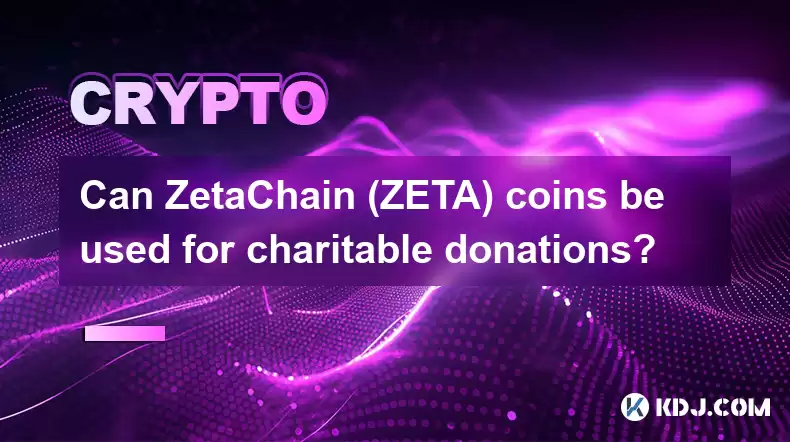-
 Bitcoin
Bitcoin $114200
0.00% -
 Ethereum
Ethereum $3637
0.56% -
 XRP
XRP $2.950
-2.01% -
 Tether USDt
Tether USDt $0.9999
0.02% -
 BNB
BNB $761.0
0.55% -
 Solana
Solana $164.1
-1.38% -
 USDC
USDC $0.9999
0.02% -
 TRON
TRON $0.3332
0.36% -
 Dogecoin
Dogecoin $0.2012
-0.52% -
 Cardano
Cardano $0.7261
-1.41% -
 Hyperliquid
Hyperliquid $37.62
-2.13% -
 Stellar
Stellar $0.3930
-2.65% -
 Sui
Sui $3.441
-0.16% -
 Bitcoin Cash
Bitcoin Cash $563.8
0.70% -
 Chainlink
Chainlink $16.50
0.09% -
 Hedera
Hedera $0.2424
-0.14% -
 Ethena USDe
Ethena USDe $1.001
0.01% -
 Avalanche
Avalanche $22.20
0.00% -
 Litecoin
Litecoin $118.0
-2.48% -
 UNUS SED LEO
UNUS SED LEO $8.991
0.12% -
 Toncoin
Toncoin $3.195
-3.87% -
 Shiba Inu
Shiba Inu $0.00001217
0.12% -
 Uniswap
Uniswap $9.674
-0.21% -
 Polkadot
Polkadot $3.633
1.00% -
 Monero
Monero $295.3
-0.82% -
 Dai
Dai $0.9999
0.00% -
 Bitget Token
Bitget Token $4.321
-0.41% -
 Cronos
Cronos $0.1392
0.73% -
 Pepe
Pepe $0.00001027
-0.89% -
 Aave
Aave $258.5
0.32%
Can ZetaChain (ZETA) coins be used for charitable donations?
ZetaChain (ZETA) offers cross-chain flexibility for charitable donations, but its acceptability by non-profit organizations remains a key factor to consider.
Dec 23, 2024 at 06:09 am

Key Points:
- Understanding ZetaChain (ZETA) and its Role as a Versatile Cryptocurrency
- Exploring the Feasibility of Charitable Donations Using ZETA Coins
- Exploring Other Cryptocurrencies for Charitable Giving
- Examining the Benefits and Considerations of Cryptocurrency Donations for Non-Profit Organizations
- Investigating the Regulatory Landscape and Taxation Implications of Crypto Charitable Donations
Exploring ZetaChain (ZETA) and Its Usefulness in Charitable Donations
ZetaChain (ZETA) is a groundbreaking blockchain platform that facilitates frictionless cross-chain transactions, enabling the transfer of assets and data across different blockchains. With its innovative technology, ZetaChain has gained traction in the cryptocurrency realm as a secure and reliable platform.
When considering the use of ZETA coins for charitable donations, it is crucial to understand its capabilities and limitations. While ZetaChain excels in cross-chain interoperability, allowing for seamless transfers between various crypto ecosystems, there are certain aspects to consider regarding its suitability for charitable giving.
Feasibility of Charitable Donations Using ZETA Coins
Utilizing ZETA coins for charitable donations poses both advantages and challenges. On the one hand, ZETA's cross-chain compatibility offers flexibility by enabling donors to contribute from multiple blockchain networks, increasing accessibility. On the other hand, the acceptability of ZETA coins by non-profit organizations remains a critical factor.
Exploring Other Cryptocurrencies for Charitable Giving
Beyond ZETA, there are numerous cryptocurrencies available that cater specifically to charitable donations. These coins, designed with a focus on social impact and philanthropy, offer unique benefits tailored towards non-profit organizations and donors.
- The Giving Block: A platform that seamlessly integrates with various non-profits, enabling them to accept cryptocurrency donations. The Giving Block supports a wide range of cryptocurrencies, including Bitcoin, Ethereum, and Dogecoin.
- CharityStars: A platform that combines star power with the power of blockchain to raise funds for charitable causes. CharityStars hosts auctions and experiences, with proceeds going to non-profit organizations. It accepts a variety of cryptocurrencies, including Bitcoin, Ethereum, and Litecoin.
- BitGive Foundation: A non-profit organization dedicated to leveraging blockchain technology for social impact. BitGive focuses on providing financial aid and resources to less fortunate communities around the globe. It predominantly accepts Bitcoin as a donation currency.
Benefits of Cryptocurrency Donations for Non-Profit Organizations
Cryptocurrency donations can provide non-profit organizations with an array of advantages. These include:
- Increased Accessibility: Cryptocurrency donations open up new avenues for global contributions, eliminating geographical barriers and enabling donations from anywhere with an internet connection.
- Lower Transaction Fees: Compared to traditional payment methods, cryptocurrency transactions often entail lower transaction fees, allowing non-profits to maximize their funds and allocate more resources towards their missions.
- Enhanced Transparency: Blockchain technology offers greater transparency, enabling donors to track the movement and utilization of their funds. This transparency fosters trust and accountability within the non-profit sector.
Considerations for Non-Profit Organizations Accepting Crypto Donations
While cryptocurrency donations offer benefits, non-profit organizations must carefully consider the following:
- Volatility: The crypto market is known for its volatility, and the value of cryptocurrencies can fluctuate significantly. Non-profits need to be prepared for potential price fluctuations and develop strategies to mitigate financial risks.
- Security: Cryptocurrencies are digital assets, and managing them requires proper security measures. Non-profits must implement robust security protocols to protect their crypto holdings from theft or cyberattacks.
- Regulatory Compliance: Non-profit organizations must comply with relevant laws and regulations governing cryptocurrency donations. This includes understanding tax implications, reporting requirements, and anti-money laundering measures.
FAQs:
Q: What is the difference between ZetaChain (ZETA) and other cryptocurrencies?
A: ZetaChain's unique feature is its cross-chain interoperability, allowing the seamless transfer of assets and data across diverse blockchain networks. This differentiation sets it apart from other cryptocurrencies primarily focused on their own blockchain ecosystems.
Q: Which non-profit organizations accept ZETA coins as donations?
A: Currently, there is no official information regarding non-profit organizations that directly accept ZETA coins as donations. However, as ZETA's adoption and awareness grow, its acceptance by non-profit organizations may increase in the future.
Q: Can I convert ZETA coins into Bitcoin or Ethereum for charitable donations?
A: Yes, you can convert ZETA coins into other cryptocurrencies, such as Bitcoin or Ethereum, using reputable cryptocurrency exchanges or decentralized platforms. Once converted, you can then donate the funds to non-profit organizations that accept the respective cryptocurrency.
Disclaimer:info@kdj.com
The information provided is not trading advice. kdj.com does not assume any responsibility for any investments made based on the information provided in this article. Cryptocurrencies are highly volatile and it is highly recommended that you invest with caution after thorough research!
If you believe that the content used on this website infringes your copyright, please contact us immediately (info@kdj.com) and we will delete it promptly.
- EIP-7999: Ethereum's Fee Fixer-Upper – Is This the End of Gas Fee Nightmares?
- 2025-08-06 15:10:22
- Ethereum Withdrawals, Institutional Confidence, and a Potential Price Rally: Decoding the Signals
- 2025-08-06 15:30:12
- Ethereum Reform: EIP-7999 and the Quest for Fee-less Crypto?
- 2025-08-06 15:30:12
- XRP, MAGACOIN FINANCE, and Ethereum: What's Hot in the Crypto World?
- 2025-08-06 15:35:12
- Unilabs, Ethereum, and Dogecoin: Navigating the Crypto Landscape
- 2025-08-06 15:35:12
- ETH, BTC, XRP: Navigating Crypto Volatility and Spotting the Next Big Thing
- 2025-08-06 15:40:11
Related knowledge

What is Chainlink (LINK)?
Jul 22,2025 at 02:14am
Understanding Chainlink (LINK): The Decentralized Oracle NetworkChainlink is a decentralized oracle network designed to bridge the gap between blockch...

What is Avalanche (AVAX)?
Jul 22,2025 at 08:35am
What is Avalanche (AVAX)?Avalanche (AVAX) is a decentralized, open-source blockchain platform designed to support high-performance decentralized appli...

What is Polkadot (DOT)?
Jul 19,2025 at 06:35pm
Understanding the Basics of Polkadot (DOT)Polkadot (DOT) is a multi-chain network protocol designed to enable different blockchains to transfer messag...

What is Litecoin (LTC)?
Jul 23,2025 at 11:35am
Overview of Litecoin (LTC)Litecoin (LTC) is a peer-to-peer cryptocurrency that was created in 2011 by Charlie Lee, a former Google engineer. It is oft...

What is Monero (XMR)?
Jul 21,2025 at 10:07am
What is Monero (XMR)?Monero (XMR) is a decentralized cryptocurrency designed to provide enhanced privacy and anonymity for its users. Unlike Bitcoin a...

How to add indicators to Ethereum chart on TradingView?
Jul 19,2025 at 07:15am
What Is an Ethereum Chart on TradingView?The Ethereum chart on TradingView is a visual representation of the price movement of Ethereum (ETH) over a s...

What is Chainlink (LINK)?
Jul 22,2025 at 02:14am
Understanding Chainlink (LINK): The Decentralized Oracle NetworkChainlink is a decentralized oracle network designed to bridge the gap between blockch...

What is Avalanche (AVAX)?
Jul 22,2025 at 08:35am
What is Avalanche (AVAX)?Avalanche (AVAX) is a decentralized, open-source blockchain platform designed to support high-performance decentralized appli...

What is Polkadot (DOT)?
Jul 19,2025 at 06:35pm
Understanding the Basics of Polkadot (DOT)Polkadot (DOT) is a multi-chain network protocol designed to enable different blockchains to transfer messag...

What is Litecoin (LTC)?
Jul 23,2025 at 11:35am
Overview of Litecoin (LTC)Litecoin (LTC) is a peer-to-peer cryptocurrency that was created in 2011 by Charlie Lee, a former Google engineer. It is oft...

What is Monero (XMR)?
Jul 21,2025 at 10:07am
What is Monero (XMR)?Monero (XMR) is a decentralized cryptocurrency designed to provide enhanced privacy and anonymity for its users. Unlike Bitcoin a...

How to add indicators to Ethereum chart on TradingView?
Jul 19,2025 at 07:15am
What Is an Ethereum Chart on TradingView?The Ethereum chart on TradingView is a visual representation of the price movement of Ethereum (ETH) over a s...
See all articles

























































































